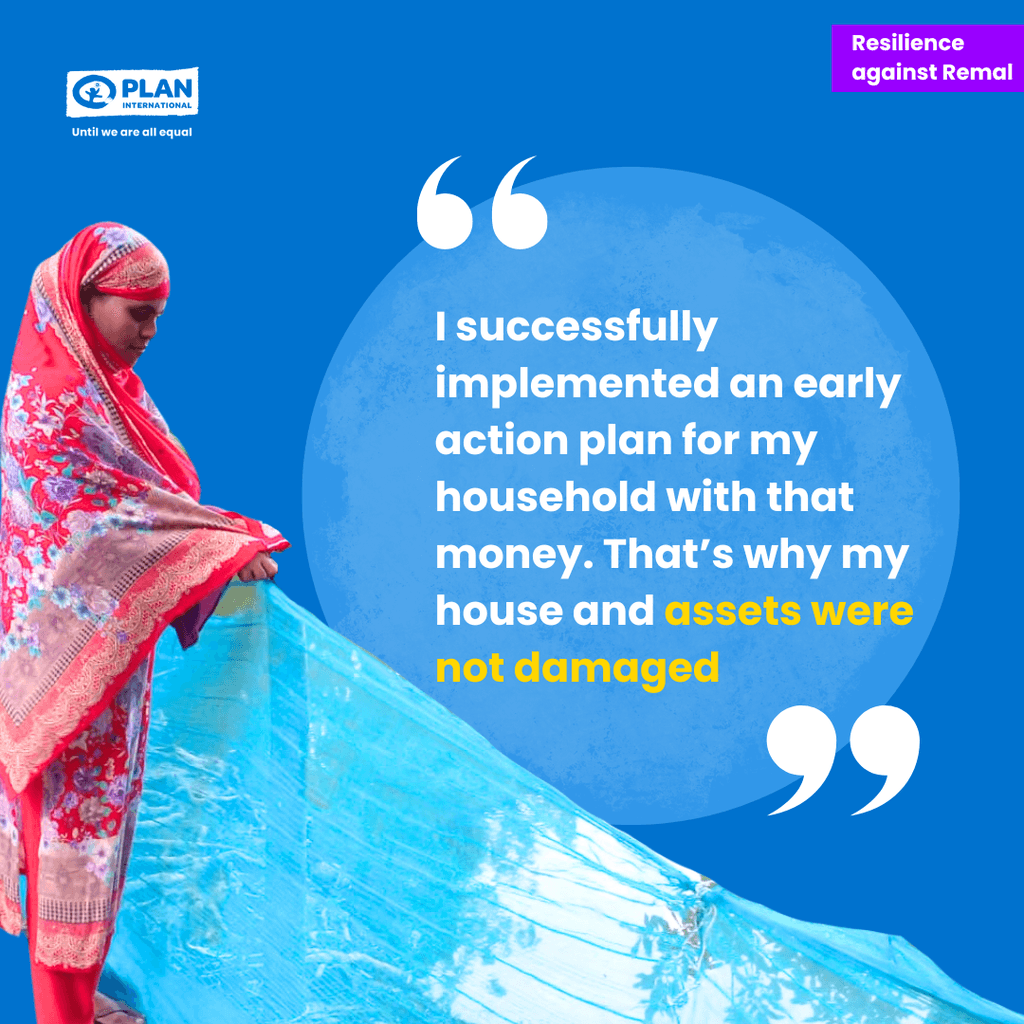Rabeya, building resilience to disaster and climate threats
With niche knowledge and skills regarding anticipatory action and resilience to disaster and climate threats, Rabeya became a guard of protection for her community when Cyclone Remal arrived.
“I learned about cyclone forecasting, signals, and early actions in courtyard meetings.”
-Rabeya
Training to tackle disaster and climate threats
Rabeya lives outside a dam with her husband and daughter in a disaster-prone community of coastal Bangladesh. While her husband works as a fisherman, Rabeya is registered as a CBO (Community Based Organisation) member, designated to build resilience to disaster and climate threats in case of a calamity.
In May, the severe cyclonic storm Remal struck her locality in coastal Bangladesh. It wreaked havoc in her community. Furthermore, it damaged property, crops, houses, water supplies and school buildings, leaving many stranded and even more looking for sustenance.

Rabeya’s early action preparation for the cyclone
As a Community Based Organisation member, Rabeya garnered niche skills and knowledge which prepared her to put up a fight in case disaster struck her community. In the courtyard meetings she regularly visited, Rabeya learned about early action preparedness activities such as protecting nearby livestock and freshwater bodies.
When Cyclone Remal was imminent, Rabeya prepared early. She raised the bank of her pond, repaired her house and raised the house’s plinth level. Afterwards, she bought nets to protect the fish in the pond, ropes to pull the house and dry food for survival. Moreover, She hired a van to transfer the necessary goods, cattle and birds to a nearby shelter for cyclone-affected individuals. She paid for these activities with funds she received, as a pre-selected member for forecast-based financing, 24 hours before the cyclone arrived.
Losses prevented from Cyclone Remal
“I learned about cyclone forecasting, signals, and early actions in courtyard meetings. Before Cyclone Remal, I received some funds from Plan International. I used it to implement an early action plan which protected my house and assets,” Rabeya recounted once she returned home. As a community based organisation member under Plan Bangladesh’s STEP project, she had seen the project strive to build resilience to disaster and climate threats in her area. The guidelines provided for an early action preparedness plan developed under the project had helped her in her efforts.
On returning from the shelter home with cattle and birds in good health, she found her house free of damage. Her fish were safe from the 5-7-foot surge. Rabeya’s determination, agility and quick-thinking helped her avoid loss for her family and their livelihood. She was hopeful yet disappointed as many of her neighbours were not as fortunate in the aftermath of the Cyclone Remal.
Explore Rabeya’s story and more on our Facebook page!
Emergencies, Cash and voucher assistance, Climate change, Disaster relief, Disaster risk management


